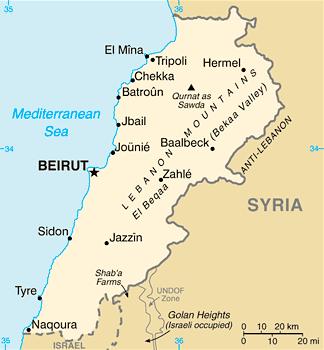BEIRUT, Lebanon - Uncertainty about Lebanon's political stability in an atmosphere of increasing sectarian division and rumors that Hezbollah is beefing up for an offensive against Israel are testing the allegiances of women loyal to the paramilitary group. Given the influence of women in Hezbollah, their ambivalence has the potential to spread further and ultimately shake the foundation of its political support among Lebanon's Shiites. While tens of thousands gathered last month to commemorate the anniversary of Hezbollah's self-declared "divine victory" against Israel (which left more than 1,200 Lebanese and 150 Israelis dead), some Hezbollah supporters question whether the sectarian violence and instability that has gripped the country in the past two years, the worst since the end of the civil war, has been worth it: political assassinations, terrorist bombings, street riots, mass demonstrations, and a war between the Lebanese Army and the Sunni radical Islamic group, Fatah al-Islam. Since the war, in addition to the violence, Lebanon has endured 10 months of political wrangling between the ruling March 14 Coalition (comprised of Sunni, Christian and Druze factions led by Saad Hariri, son of the slain former Prime Minister Rafik Hariri) and the so called pro-Syrian Opposition (spearheaded by Hezbollah and other prominent Shiite and Christian parties). The March 14 Coalition champions the U.S.-backed government of Fouad Siniora, and the pro-Syrian opposition challenges the rump government's legitimacy (after the Shiite cabinet resigned last year) and covets a national unity government with veto power for minority factions. The coalitions will face off during parliamentary voting slated for Sept. 25, in which a two-thirds quorum is needed to elect the next president, a post traditionally reserved for a Maronite Christian.
Women of Hezbollah: Growing Discontent May Fracture Loyalties

